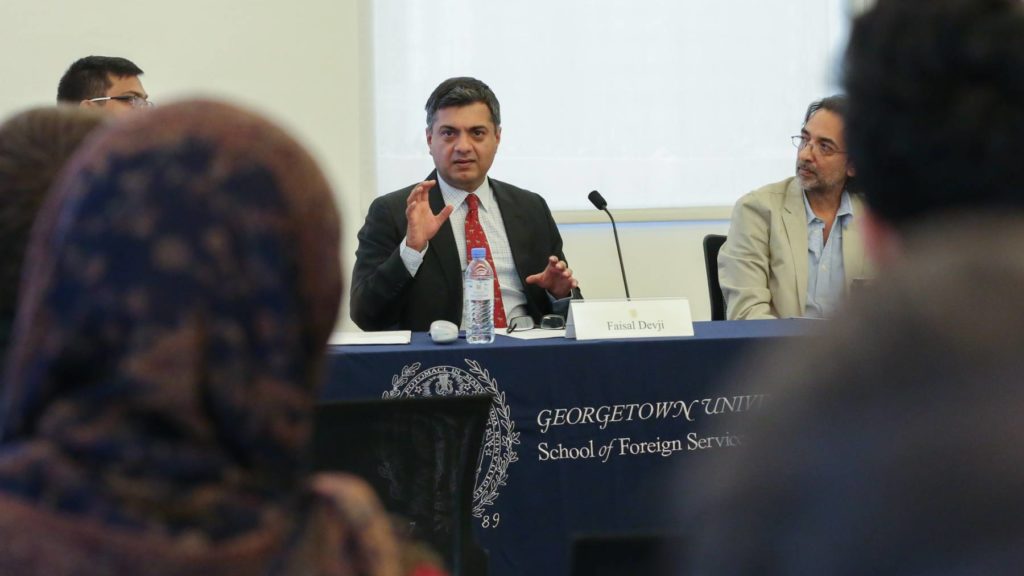Georgetown Lecture Explores the Political Inheritance of ISIS

What if the brutality of ISIS derives not from its claim to politics but the reverse, by the fact that it is ideologically unable to assume a political identity, asked the director of St Antony’s College Asian Studies Centre in the University of Oxford, Dr. Faisal Devji, at a public lecture at Georgetown University in Qatar recently.
His thoughtful question set off a presentation titled “The Political Inheritance of ISIS” about the historical and ideological roots of the group, and concluded by demonstrating how it is actually the process of rejecting the idea of the state and political autonomy that explains their escalating violence and brutality.
At the heart of ISIS ideology, he argues, and despite claims of a caliphate, there is an attempt to remove the need for a formal state. Historically, he explained, “Islamists were critical of the modern state, whether manifested in a democracy or dictatorship. The reasoning is that human authority can never be truly sovereign, because only God can hold absolute and legitimate power that the legal concept of sovereignty demanded.
“This is why Islamists thought to reserve sovereignty for God, and make of government only a fulfillment of divine commandments – a kind of management of society in which men were ruled by the sacred law rather than by other men,” he explained.
And yet, he argues, the group’s political claims “are everywhere belied by ISIS’s rhetoric and practices.” Dr. Devji broke down the elements of propaganda videos of executions presented as documentaries, and noted the acts of horrific violence given legal justification, saying it indicates that, “The social visibility ISIS demands is always placed under the name of the law, insofar as every one of its actions, however bizarre and repugnant, is justified and indeed glorified by invoking scriptural precedent.” This need to make the violence visible, he said, “has to do not simply with the requirements of propaganda, but also a will to reduce everything to the social.”
Since ISIS is so driven by a paranoid obsession of internal tyranny in the form of an emerging claim to power or sovereignty, they constantly have to display increasing brutality as a way to make everything visible. “It is the continuous rehearsal and repression of this suspect desire that defines the narrative of ISIS militancy, making the struggle of the social against the political the very principle of its movement,” he concluded.
Dr. Devji also took part in a panel discussion on the university’s campus titled, “Intimacy, Interest and Violence in Indian Political Thought”, with co-panelists Reza Pirbhai, an Associate Professor at GU-Q specializing in South Asian and World history, and Uday Chandra, an Assistant Professor of Government at GU-Q.
Dr. Faisal Devji is currently a Fellow at New York University’s Institute of Public Knowledge as well as the holder of the Yves Otramane Chair at the Graduate Institute in Geneva. He is also the author of four books: Muslim Zion: Pakistan as a Political Idea (2013), The Impossible India: Gandhi and the Temptation of Violence (2012), The Terrorist in Search of Humanity: Militant Islam and Global Politics (2009), and Landscapes of the Jihad: Militancy, Morality, Modernity (2005).